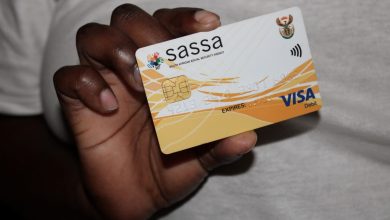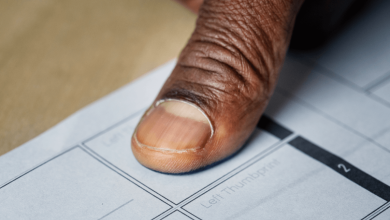Your SASSA Rights: What to Do If You’re Treated Unfairly

Navigating the South African Social Security Agency (SASSA) system can be overwhelming, especially if you feel that your rights have been violated. Whether it’s unfair treatment, delays in your grant payments, or privacy breaches, understanding your rights and knowing how to address these issues is crucial for ensuring you receive the support you’re entitled to.
This guide will walk you through your key rights as a SASSA beneficiary and provide clear steps to handle unfair treatment effectively.
The Importance of SASSA in South Africa
SASSA plays a vital role in the South African welfare system by administering social grants such as the Old Age Pension, Disability Grants, Child Support Grants, and Social Relief of Distress (SRD) grants. Millions of South Africans rely on SASSA for financial support, making it essential for the agency to treat all beneficiaries with fairness and respect.
However, issues such as delayed payments, unfair treatment, or privacy breaches can occur. Knowing what actions to take in these situations is essential to protecting your rights as a beneficiary.
Your Rights When Dealing with SASSA
As a beneficiary, you have several rights under South African law, specifically the Social Assistance Act and the South African Social Security Agency Act. These laws guarantee fair treatment, transparency, and accountability. Below, we explain each of these rights in more detail.
1. Right to Fair Treatment
SASSA employees must treat all beneficiaries with respect and professionalism, free from discrimination based on race, gender, religion, or socio-economic status. If you face unfair treatment, you can lodge a formal complaint.
What to Do:
- Step 1: First, try to resolve the issue directly with the staff member or supervisor at your local SASSA office. Be polite and clearly explain your concern.
- Step 2: If the issue is not resolved, escalate it to higher management at the local office or contact SASSA’s national helpline.
For more information on resolving disputes, visit the SASSA Complaints and Grievances Policy here.
2. Right to Appeal
You have the right to appeal if your social grant application is rejected, delayed, or if an error affects your payment.
What to Do:
- Step 1: Lodge an appeal within 90 days of the decision. Provide valid reasons for the appeal, such as a procedural error.
- Step 2: Submit your appeal either online via the SASSA website or in person at your local SASSA office.
For further details on the appeal process, refer to the SASSA Appeals Guide here.
3. Right to Privacy
Your personal information, such as your ID number, phone number, and banking details, must be protected. If SASSA mishandles your data, it is a violation of your privacy rights.
What to Do:
- Step 1: Immediately contact SASSA’s management to report any suspected misuse of your data.
- Step 2: If the issue is severe, escalate it to the Information Regulator of South Africa or the South African Human Rights Commission.
4. Right to Timely Payments
Timely payments are a critical part of the social assistance system. If your grant is delayed without a legitimate reason, you can raise a complaint and seek resolution.
What to Do:
- Step 1: Call SASSA’s helpline or visit a nearby office to inquire about any delays.
- Step 2: Regularly check the status of your grant via the SRD SASSA online portal.
For more information on payment-related issues, visit the SASSA Payment Inquiry Page here.
5. Right to Accessibility
Although many SASSA services are available online, you have the right to visit a local office for in-person assistance if you cannot access services online.
What to Do:
- Step 1: Use the official SASSA office locator tool to find your nearest office here.
6. Right to Complain
If your complaint has not been addressed adequately, you can escalate the issue to higher authorities, such as SASSA’s national office or other relevant government agencies.
What to Do:
- Step 1: Start by contacting the office or person directly involved in your issue.
- Step 2: If the matter remains unresolved, lodge a formal complaint with SASSA’s national office or escalate it to the South African Public Protector.
How to Navigate the Complaints Process
If you face unfair treatment or delays, follow these steps to ensure your concerns are heard and addressed effectively:
1. Contact SASSA Directly
- Call: Use the national helpline at 0800 60 1011 for general inquiries and support.
- Email: For SRD-related issues, email [email protected].
- Visit: Visit your local SASSA office for face-to-face assistance. Find your nearest office here.
2. Prepare Your Documentation
Ensure you have the following documents ready:
- Your application details
- Personal ID and banking information
- Any correspondence or records related to the issue.
Be clear about the problem and provide any supporting evidence.
3. File a Formal Appeal
If your issue is unresolved, file a formal appeal within 90 days of the decision.
Legal Support and Further Assistance
If you face significant challenges, legal aid organizations can provide support for individuals experiencing discrimination or unfair treatment in public service. Here are some helpful resources:
- Legal Aid South Africa provides free legal services to those who cannot afford private representation.
- The South African Human Rights Commission offers support to individuals whose rights have been violated.
Conclusion: Protecting Your Rights
Navigating SASSA’s complex system can be challenging, but it’s crucial to know that your rights protect you against mistreatment. Whether you’re appealing a decision, reporting a privacy violation, or seeking a timely payment, these rights are designed to ensure fairness.
Take action without delay. If necessary, escalate matters to the relevant authorities. Your rights are protected by South African law, and you deserve to have your concerns addressed swiftly and fairly.
FAQ
Q: What if I don’t have internet access to file an appeal?
You can visit any local SASSA office to submit your appeal in person.
Q: How long does it take for an appeal to be processed?
The processing time varies but generally takes between 30-60 days.
Q: Can I file a complaint anonymously?
Yes, you can file an anonymous complaint, but providing your details can help resolve the issue more effectively.
Check also: Can Refugees or Asylum Seekers Get a SASSA Grant?




